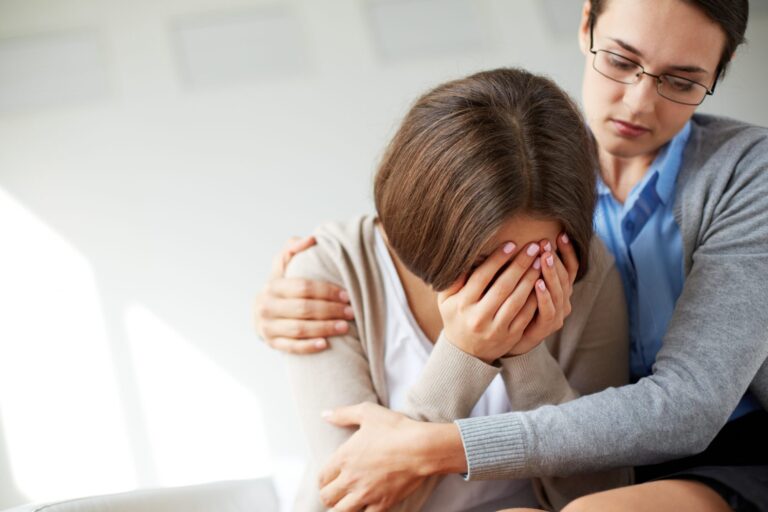Depression is much more than a short-lived feeling of sadness or the blues. It’s a condition that affects every area of a person’s life—thoughts, feelings, and physical health. Let’s start exploring early depression signs, available treatment plans, and real self-care methods for dealing with mental illness.
Depression is a major mental illness among people worldwide. It is always more than just being bored or sad; it generates a persistent low mood in which even the smallest, daily work becomes too hard to handle. Unlike an emotional feeling, depression may last from weeks, months, to years, and it requires anticipatory attention and care to be treated.
Early Signs and Symptoms of Depression
Early detection of depression then becomes the difference between seeking help and managing this disease.
Detecting Emotional Symptoms
Depressed persons may feel sad for long periods and hopeless, with a decrease in motivation. They might withdraw from their loved ones or even lose interest in things they once enjoyed. Worthlessness or guilt feelings weigh down depressed people, affecting self-esteem and making it hard to find a way out.
Read Also
Understanding Gastroenteritis: Fast Recovery Tips & Home Care
Physical Symptoms of Depression
Beyond emotional changes, depression may also be perceived in its physical form. People feel drained, or they either cannot sleep enough or get more sleep than they actually require. Their appetite increases, or they lose all their appetite. Some even undergo unexplained pains or aches or have stomach discomfort that has no obvious relation to any medical condition. All these have a bad physical impact on the psyche of the individual, causing even more psychological problems to them.
What Triggers Depression?
Understanding the causative roots of depression is central to managing it, because it results from a blend of various factors.
Biological Factors
There might be serious genetic influences a person inherits that predisposes them towards depression. History of experiencing depression within close family or relatives can highly increase this risk in most people’s lives. Chemically based imbalances particularly in one’s neurotransmitter, dopamine, and serotonin, account for the reasons behind suffering from depression or depressive effects.
Environmental and Social Influences
Stress, whether derived from a specific trauma or an economic situation, or even due to stressors arising from a particular job, could be depression triggers. At other times the feeling due to pressure to feel isolated or be in a society that people do not want your company may lead to depressive symptoms such as feeling lonely or sad.
Different Types of Depression
This is because there are several types of depression. Each has different features
- Major Depressive Disorder (MDD): This is the most common type, but it is marked by severe manifestations that affect the patient’s functioning.
- Persistent Depressive Disorder (Dysthymia): agt;Less severe but chronic, in that it lasts for two years or more in a given person.
- Bipolar Disorder: Characterized by the presence of periods of low mood and the presence of periods of increased mood or mania.
- Seasonal Affective Disorder (SAD): Happens during winter season or any other time of the year when there is little light throughout the day.
Possible Solutions in Treating Depression
Although depression is characterised by feelings of loneliness, help for the symptoms is available once the sufferer decides to come forward.
Therapy and Counseling
Therapists are different in that simple conversation allows for a safe zone where thoughts and feelings can be addressed to begin the process of finding strategies to deal with them. Of these approaches CBT is reported to be especially helpful in encouraging patients to grasp and change negative ways of thinking. Cognitive behavioral therapy offers problem solving solutions regarding the experience of difficult aspects of daily living, coupled with the therapeutic effect of medication, led to a lessening of the severity of depressive symptoms in the long run.
Medication Options
Antidepressants, such as SSRIs, can also prove useful for the control of brain chemicals to alleviate many of the symptoms of depression. A medication is in no way a prescription one takes in the hopes it will have the desired effects without ongoing follow-up appointments with one’s physician, who monitors the individual for the use of the most effective drugs with few or no negative side effects.
Practical Strategies for Maximizing Good Mental Health
Self-care itself will not “treat” depression but is crucial in helping to keep a person with depression on their feet or at least coping better with the symptoms of the illness.
Building Healthy Habits
A daily routine with some consistency helps one create a sense of normalcy and is comforting during episodes of depression. Regular physical activity, even a simple walk, has been shown to release mood-lifting endorphins. A healthy lifestyle also includes a well-balanced diet and good sleep habits, which provide for mental clarity and energy.
Mindfulness and Relaxation Techniques
Mindfulness techniques- such as deep breathing, meditation, and even journaling -may have the ability to refocus someone to a moment in the present or even regain control over racing thoughts. Practicing gratitude by writing down positive moments that can be realized in each day slowly builds up moods working on countering some effects of depression.


